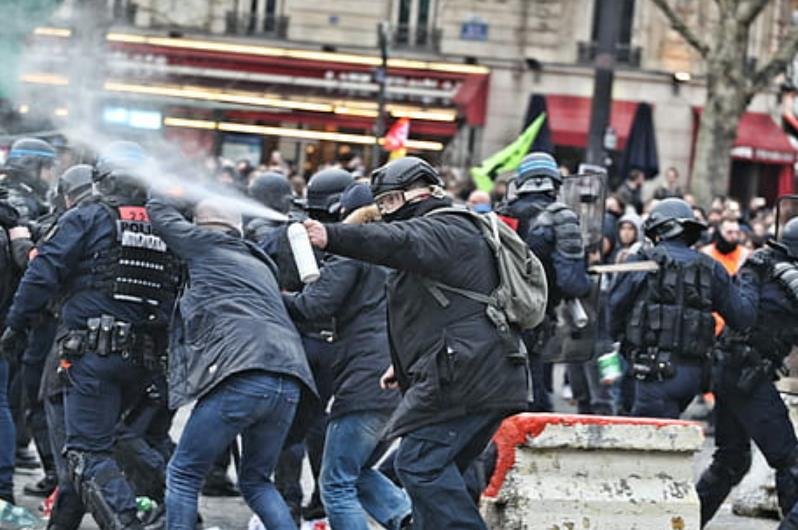Hundreds of French farmers staged a protest at Rungis food market, the largest wholesale market in Europe, on Wednesday night, demanding better prices and conditions for their products. The farmers, who have been blocking roads and highways around Paris for two weeks, tried to enter the market and disrupt the food supply chain that feeds 12 million people daily.
The farmers are unhappy with the government’s agricultural policies, which they say favor large retailers and agribusinesses, and leave them with low incomes and high costs. The farmers are also opposed to the EU’s Common Agricultural Policy, which they say does not protect them from foreign competition and environmental regulations.
The farmers are calling for a fairer distribution of the value added along the food chain, and for more support and recognition from the government and the consumers. They are also demanding the resignation of the agriculture minister, Julien Denormandie, whom they accuse of being out of touch with their reality.

The Protest Confrontation
The protest turned violent when the farmers clashed with the police, who had been deployed to prevent them from entering the market. The police used tear gas and water cannons to disperse the protesters, who threw stones, bottles, and firecrackers at the officers. The police also set up checkpoints and barricades around the market, and confiscated several tractors and trailers.
The police said that they arrested 91 protesters, who face charges of disturbing public order, obstructing traffic, and assaulting law enforcement agents. The police also said that they seized about 3,000 cannabis plants, several weapons, and a large amount of cash from an illegal cannabis farm near the market, which they suspect was linked to the protesters.
The protesters said that they were met with excessive force and brutality by the police, who violated their right to protest peacefully. The protesters also said that they were not involved in the cannabis farm, and that the police used it as a pretext to crack down on them.
The Protest Aftermath
The protest at Rungis food market was one of the most violent episodes in the ongoing farmers’ movement, which has been dubbed the “siege of Paris”. The movement has caused significant disruptions and damages to the traffic and the economy of the French capital, and has drawn the attention and the criticism of the government and the public.
The government has condemned the violence and the vandalism of the protesters, and has warned them not to target strategic sites, such as airports, train stations, or food markets. The government has also said that it is ready to dialogue and negotiate with the farmers, and that it has already taken several measures to address their grievances, such as increasing the minimum price for milk, beef, and pork, and creating a fund to help the farmers cope with the COVID-19 crisis.
The farmers have said that they will continue their protests until their demands are met, and that they will not be intimidated or deterred by the police or the government. The farmers have also said that they have the support and the sympathy of the majority of the French people, who appreciate their role and their products.
The protest at Rungis food market has highlighted the deep discontent and the anger of the French farmers, who feel neglected and exploited by the system. The protest has also exposed the challenges and the contradictions of the French food sector, which is torn between the demands of the market and the expectations of the society.
















